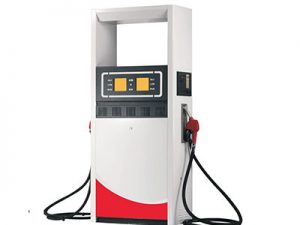Introduction
Fuel dispenser machines are the unsung heroes of the fuel industry. These devices ensure that fuel is accurately measured and efficiently delivered, playing a pivotal role in the daily operations of fuel stations worldwide. In this article, we’ll delve into the various types of fuel dispenser machines in Kenya, their specific uses, and key features to consider when choosing the right one for your needs.
The Role of Fuel Dispenser Machines in Kenya
So, what exactly are fuel dispenser machines? Simply put, they are devices designed to pump fuel into vehicles and accurately measure the quantity dispensed. These machines are equipped with various components, including pumps, meters, and nozzles, to ensure precise fuel delivery.

Buy high-quality Fuel Dispenser Pumps for sale in Kenya at Exstream Energy. Reliable and efficient solutions for your fuel needs.
Importance in Fuel Distribution
Fuel dispenser machines are crucial for several reasons:
- Accurate Fuel Delivery: Ensuring customers receive the correct amount of fuel they pay for is essential for maintaining trust and compliance with regulations.
- Efficiency and Safety: Modern fuel dispensers are designed to enhance the efficiency of fuel stations and ensure the safety of both staff and customers.
Types of Fuel Dispenser Machines in Kenya
Fuel dispenser machines come in various types, each with its own set of features and benefits. Let’s take a closer look at the most common types.
Mechanical Fuel Dispensers
Mechanical fuel dispensers are the traditional type, relying on mechanical components to measure and dispense fuel. They are known for their durability and simplicity.
Pros and Cons
- Pros:
- Simple to use and maintain
- Cost-effective
- Cons:
- Limited accuracy compared to electronic dispensers
- Fewer features and functionalities
Common Use Cases
Mechanical fuel dispensers are often found in rural areas or smaller fuel stations where advanced features are not a priority.
Electronic Fuel Dispensers
Electronic fuel dispensers in Kenya utilize digital technology to measure and dispense fuel. They offer enhanced accuracy and a range of additional features.
Pros and Cons
- Pros:
- High accuracy and precision
- Advanced features such as digital displays and automated reporting
- Cons:
- Higher initial cost
- Requires more complex maintenance
Common Use Cases
These dispensers are commonly used in urban fuel stations and large-scale operations where accuracy and advanced features are crucial.
Multi-Product Dispensers
Multi-product dispensers can dispense different types of fuels (e.g., petrol, diesel, and LPG) from a single unit. They are designed to save space and streamline operations.
Pros and Cons
- Pros:
- Space-saving design
- Versatile and convenient
- Cons:
- Higher cost
- More complex maintenance
Common Use Cases
Ideal for fuel stations with limited space or those offering multiple types of fuel.
High-Flow Fuel Dispensers
High-flow fuel dispensers are designed for rapid fuel delivery, making them suitable for high-demand environments.
Pros and Cons
- Pros:
- Fast dispensing rate
- Reduces wait times for customers
- Cons:
- Higher cost
- May require specialized maintenance
Common Use Cases
Commonly used in truck stops, commercial fueling stations, and airports.
Submersible Pump Systems
Submersible pump systems place the pump directly in the fuel tank, allowing for efficient fuel delivery and reduced chances of leaks.
Pros and Cons
- Pros:
- Efficient fuel delivery
- Reduced risk of leaks
- Cons:
- Higher installation cost
- More complex maintenance
Common Use Cases
Often used in large-scale fuel stations and commercial fueling operations.
Key Features to Consider When Buying Fuel Dispenser Machine in Kenya
When choosing a fuel dispenser machine in Kenya, several key features should be considered to ensure you select the right one for your needs.
Accuracy and Precision
Importance in Fuel Dispensing
Accurate fuel measurement is essential for maintaining customer trust and complying with regulations.
Features That Enhance Accuracy
- Digital meters
- Calibration systems
- Advanced sensors
Durability and Build Quality
Materials and Construction
High-quality materials and robust construction ensure the longevity and reliability of the dispenser.
Long-Term Reliability
Investing in durable machines can reduce maintenance costs and downtime in the long run.
User Interface and Usability
Ease of Use for Attendants and Customers
A user-friendly interface ensures that both attendants and customers can operate the dispenser with ease.
Display and Control Options
Modern dispensers come with digital displays, touchscreens, and intuitive control panels.
Maintenance and Serviceability
Ease of Maintenance
Regular maintenance is crucial for keeping the dispenser in optimal condition.
Availability of Parts and Service
Choose a dispenser from a reputable supplier to ensure easy access to replacement parts and service.
Choosing the Right Fuel Dispenser Machine in Kenya
Assessing Your Needs
Volume and Type of Fuel
Consider the volume of fuel you dispense and the types of fuel you offer when choosing a dispenser.
Specific Requirements of Your Fuel Station
Evaluate your station’s specific needs, such as space constraints and customer flow.
Budget Considerations
Initial Investment vs. Long-Term Benefits
While advanced fuel dispensers in Kenya may have a higher initial cost, their long-term benefits, such as accuracy and durability, can outweigh the expense.
Cost of Maintenance and Operation
Factor in the cost of maintenance and operation when making your decision.
Supplier Reputation and Support
Importance of Choosing a Reputable Supplier
A reputable supplier Like Exstream Energy ensures you receive a high-quality product and reliable after-sales support.
After-Sales Support and Service
Choose a supplier like Exstream Energy that offers excellent after-sales support and service to ensure the longevity of your dispenser.
Common Fuel Dispenser Machines in Kenya FAQs
What is the most accurate type of fuel dispenser machine?
Electronic fuel dispensers are generally the most accurate due to their advanced digital technology and precision sensors.
How often should fuel dispenser machines be serviced?
Regular maintenance is recommended, typically every 6 to 12 months, depending on usage and manufacturer guidelines.
What factors should I consider when choosing a fuel dispenser machine?
Consider factors such as the volume and type of fuel you dispense, your budget, the durability and features of the dispenser, and the reputation of the supplier.
Can I upgrade from a mechanical to an electronic fuel dispenser?
Yes, many suppliers offer upgrade options to transition from mechanical to electronic fuel dispensers, enhancing accuracy and features.
How do multi-product dispensers work?
Multi-product dispensers can dispense different types of fuels from a single unit, using separate hoses and meters for each fuel type. This design saves space and streamlines operations.
By understanding the different types of fuel dispenser machines and their features, you can make an informed decision that enhances the efficiency and safety of your fuel station.
Conclusion
Recap of Key Points
We’ve explored the different types of fuel dispenser machines, including mechanical, electronic, multi-product, high-flow, and submersible pump systems. Each type has its own set of features, pros, and cons.
Final Thoughts on Fuel Dispenser Machines
Choosing the right fuel dispenser machine is crucial for the efficiency and safety of your fuel station. By considering factors such as accuracy, durability, usability, and maintenance, you can make an informed decision that meets your needs.
For expert advice and high-quality fuel dispenser machines, contact Exstream Energy today. Our team is ready to help you find the perfect solution for your fuel station.






